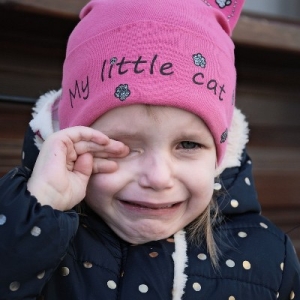From The Library
The Mind of a Child: When Children Grieve

Many children lose close loved ones in their early years. And surviving family members may be ill equipped to deal with their own grief and consequently, the grief of the children. According to Comfort Zone Camp, the nation’s largest non-profit provider of childhood bereavement camps, a survey of 1,006 adults age 25 and over revealed that more than one in seven (15%) reported losing a parent (11%) or sibling (5%) before age 20.
As a result of such loss, a child may experience any number of feelings including confusion, fear, sadness, bewilderment, anxiety or numbness. However, depending on the child’s ability to express their feelings with words, they may or may not be able to communicate what they are experiencing, thinking or feeling. Depending on the circumstances of the loss and who died, the adults who are caring for the child may not have the capacity, understanding, or resources to help that particular child navigate their grief.
Generally, adults tend to have a vague or mistaken awareness of how children perceive and process information. Often, people tend to believe that others think the same way they do. Most of us eventually realize that’s not the case, but we sometimes have to remind ourselves that not everyone experiences life the same way that we do—we don’t all think the same or feel the same—even when presented with the same situation or facts. And so it is with children. Like adults, children will have a wide range of responses to the death of a close loved one.
Some children may express their grief by crying, showing signs of sadness, lethargy, withdrawal, fear or any number of behavioral changes. They may be over excited or agitated. They may ignore what’s happened by continuing to go about their usual activities, closed off from the reality of what’s going on around them. Likewise, they may notice the sadness in the adults around them and try to sooth the adults by being extra good and obedient. Some children may also feel or sense that it is their responsibility to make everyone feel all right.
If you’ve lost your parent, spouse, or child you would most likely be deeply engaged in your own feelings of grief and loss. As a parent or grandparent, you might be adversely affected by sleep deprivation or debilitating sadness and you will most likely be extremely busy making all the arrangements for a funeral—attending to all the paperwork, financial obligations and various duties of discarding possessions, closing an apartment or selling property. Now, it’s more than understandable that in the midst of those demands you may shut down since you may not have the emotional resources or reserves to attend to a grieving child. But this is where you must draw on your reserves or the help of family, friends, professionals or institutions for support for yourself and your child.
Unfortunately, in today’s world there is a slew of constant access to negative media images and sounds of destruction, crime, tragedy, catastrophe, war and death. It’s not only news, but our entertainment and music that are filled with negative sounds and images of death; we may not be able to sufficiently insulate our children from this. Our minds might also be bombarded with images and information that cause excess and undue fear, anxiety, and worry. Today a child may have heard stories of school shootings or they may know the details of a friends’ or classmates’ untimely death.
Fortunately, in today’s world there are many excellent programs and services that can help you navigate your own grief and sorrow as well as your child’s grief. Many hospitals and churches now offer bereavement programs, and trained grief specialists are able to guide you through the process of grief recovery and healing. It’s not the standard custom in some cultures to discuss death, so when a child first experiences the loss of a close loved one, it is necessary to help them process this change. Although there is a permanent physical loss of the person, a child may be comforted by stories of the person, by being gifted with a cherished possession of the lost love one, or by being able to talk about that person openly and safely—with acceptance and support. Being aware, observant and open to children’s unique response to the death of a close loved one is a sound starting point for the healing journey to begin. Additionally, being more sensitive to the emotional needs of your grieving child can serve as a bridge for deepening family connectedness and feelings of being loved.



